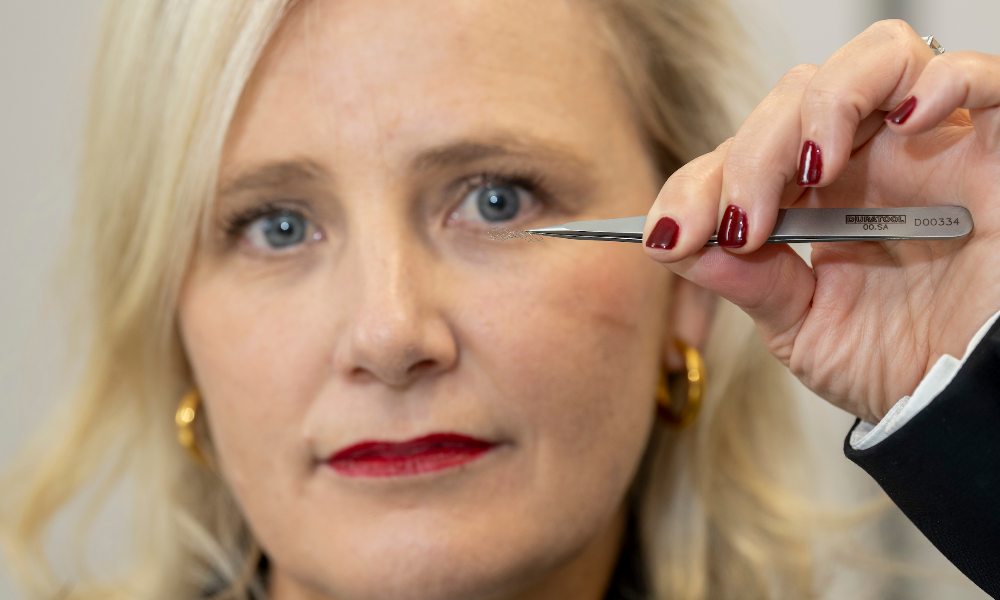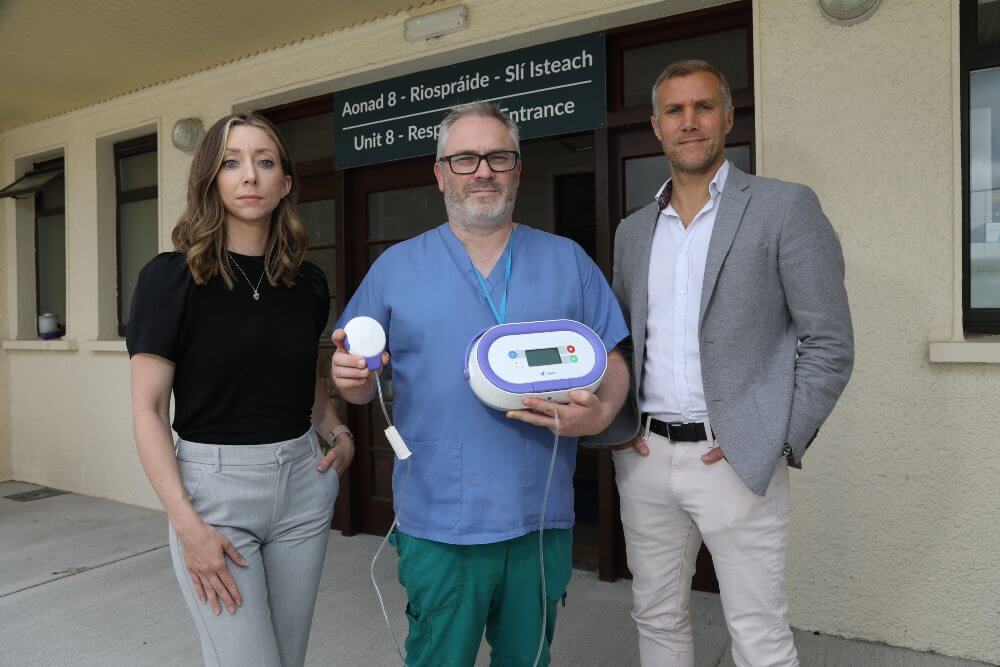Vertigenius has developed a wearable head sensor and software that can improve the treatment of vertigo.
Trinity College Dublin spin-out Vertigenius has raised €2.1m in seed funding that will result in the creation of 10 new jobs and power the firm’s expansion to the US and UK.
Dublin medtech business Vertigenius has raised more than €2.1m in seed funding that will result in the creation of 10 new jobs and the firm’s expansion to the US and UK.
The oversubscribed investment was led by Atlantic Bridge and included investments from Ascentifi and Enterprise Ireland.
“Our products enable better access by monitoring treatment in the home and delivering faster care through technology”
Vertigo is a common, highly treatable, but often debilitating condition affecting 390 million people worldwide every year.
Hello, hello, I’m at a place called Vertigo
The complexity of the exercises means that patients can struggle with adherence to treatment.
Founded by vestibular expert Dr Dara Meldrum, Vertigenius aims to improve the delivery of care to people suffering from vertigo.
The company has developed a wearable head sensor and software that allows therapists to prescribe and track exercises carried out by patients, monitor patient symptoms and therefore gain insights into the effectiveness of treatments.
“We know that vestibular rehabilitation is effective, however access to treatment is a major issue,” said Dr Meldrum. “Our products enable better access by monitoring treatment in the home and delivering faster care through technology.
“Exercise programmes can be complicated for those in the midst of vertigo episodes, and our patients respond very well to the real-time guidance from our solution. So not only do we enable therapists to treat more patients more quickly, but we also dramatically improve the patient experience.”
Interacting with a head sensor that is worn during exercises, a patient-facing app shows users how to correctly carry out their exercises and monitors their symptoms in real time. This enables therapists to deliver care more effectively, reduce patient visits and reduce lengthy waiting lists.
“This investment is a testament to the transformative potential of our products in revolutionising the treatment of vertigo,” said Vertigenius CEO Mark Barry. “Worldwide, patients who have been diagnosed with vertigo can face months-long waiting lists or an inability to get access to treatment at all.
“Research has shown that patients with vertigo are 12 times more likely to have a fall, while 63% of them lose workdays and 50% suffer from anxiety. Our mission is to enable early access to high quality care for vertigo patients, which will improve the lives of millions of people. With this funding, we are well-positioned to advance this ambitious mission.”
With the new infusion of capital, Vertigenius is poised to accelerate its expansion into new markets.
The company’s software is currently being used by clinics and more than 1,000 patients in Ireland. It plans to enter the UK market in the middle of 2024 and the US market early next year. The addressable market for its solution in these three countries alone is almost €3BN annually.
Vertigenius also plans to leverage the funds to continue with the product development of its head sensor. It intends to launch a second version of its head sensor in 2025.
“The company’s innovative approach, based on technology developed by Dr Dara Meldrum at Trinity College Dublin, combined with their experienced team led by Mark Barry, and strong market potential, positions the company for significant success,” said Conor O’Sullivan, investment director, Atlantic Bridge.
“We look forward to supporting them in their mission to transform the lives of vertigo patients globally.”
Main image at top: Mark Barry, CEO, Vertigenius; Dr Dara Meldrum, Founder, Vertigenius; and Conor O’Sullivan, Investment Director, Atlantic Bridge
-
Bank of Ireland is welcoming new customers every day – funding investments, working capital and expansions across multiple sectors. To learn more, click here





